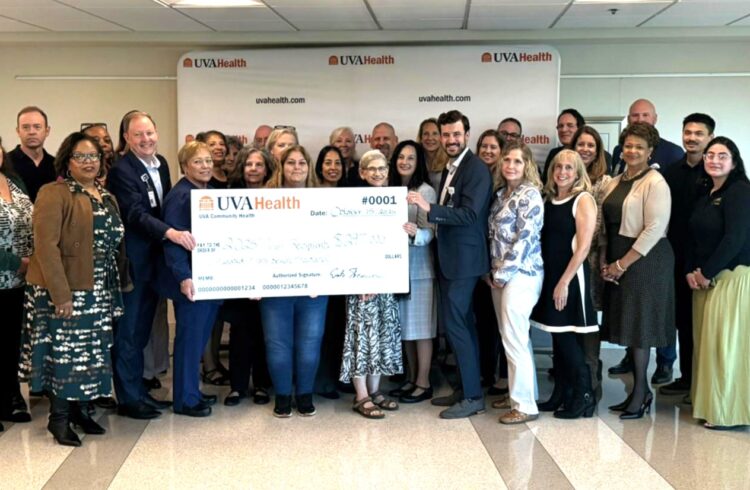
CHARLOTTESVILLE, Va., July 11, 2012 – Of the 43,000 Americans diagnosed as having pancreatic cancer each year, only 10 percent to 15 percent are diagnosed early enough to receive potentially lifesaving surgery. The main challenge: There are no established screening guidelines for early detection, leaving doctors unclear about which patients to screen and what tests to use.
To help give pancreatic cancer patients the best chance to defeat this aggressive disease, the Emily Couric Clinical Cancer Center at the University of Virginia Health System is among the first in the nation to open a comprehensive High-Risk Pancreatic Cancer Clinic to provide comprehensive care faster for these patients.
The clinic’s primary goals include:
Identify patients at high risk for pancreatic cancer. Although risk factors such as obesity, smoking and alcohol consumption are associated with pancreatic cancer, these factors alone are not enough to identify patients who need to be checked.
People at highest risk are those with pancreatic cysts, pancreatitis and those with a family history of pancreatic cancer. “Just being able to identify patients who are high risk will have a major impact,” says UVA surgical oncologist Todd Bauer, MD. Instead of a typical six-month survival rate among those with advanced-stage pancreatic cancer, Bauer hopes the ability to identify these high-risk patients sooner will mean earlier detection, longer survival and a greater chance for a cure.
Detect pancreatic cancer sooner. The clinic can examine high-risk patients with a high-resolution CT, MRI or endoscopic ultrasound, which are the only known screening technologies that are effective in detecting pancreatic cancer.
“If we identify something in the pancreas that looks suspicious, our multidisciplinary team will review the test results,” says Reid Adams, MD, Chief of the Divisions of Surgical Oncology, Hepatobiliary and Pancreatic Surgery. “If necessary, we can then offer surgery to remove the cancer.”
Provide personalized treatment sooner. For patients with an abnormal finding or with pancreatic cancer, UVA’s High-Risk Pancreatic Cancer Clinic will provide a tailored treatment plan for each patient. UVA’s pancreatic cancer team consists of surgeons, gastroenterologists, pathologists, radiologists, genetic counselors and nurses who specialize in treating diseases of the pancreas.
“Comprehensive care is our strength. UVA has expert staff working together at this clinic to ensure patients are receiving the best care at the right time: Early—the time when pancreatic cancer patients have the best chance of survival,” adds Adams.
For Media Inquiries: Todd Bauer, MD is available today for media interviews.


